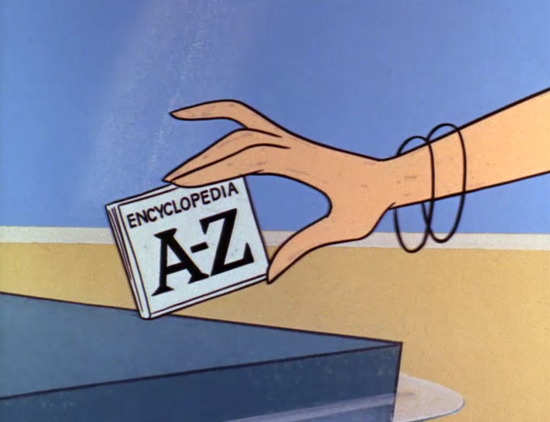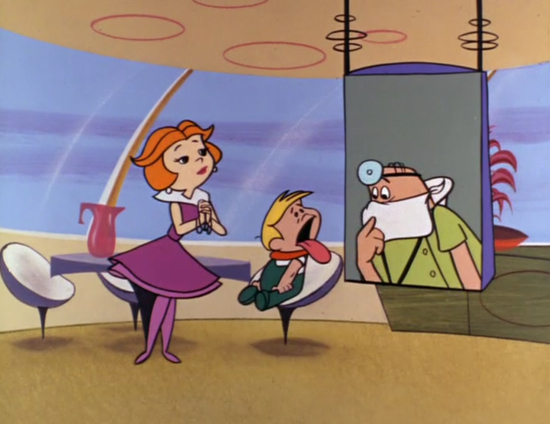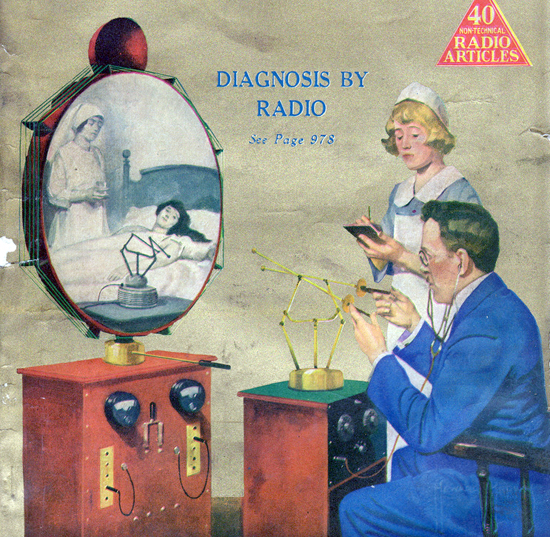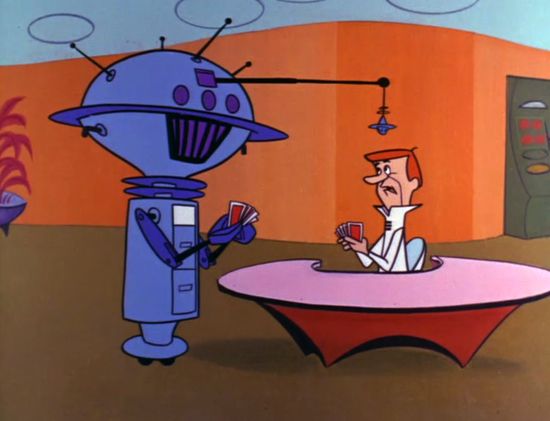The Episode Where George Jetson Rages Against the Machine
Never trust a robot co-worker
![]()
This is the tenth in a 24-part series looking at every episode of “The Jetsons” TV show from the original 1962-63 season.
From the very first episode “The Jetsons” promised a push-button future of leisure. But this vision of easy-living sometimes has a dark side. A side where robots might cease helping you—and begin stealing your job.
In the tenth episode titled “Uniblab,” which originally aired on November 25, 1962, the action is largely driven by George and an antagonist robot by the name of Uniblab. This episode is arguably the darkest in its message to kids that one day you may very well be replaced by a machine.
Before we reach the main narrative, we’re introduced to a number of new technological wonders. Jane complains that Judy’s “micro-books” are always getting lost. We see a shot of Jane picking up Judy’s “Encyclopedia A-Z,” which she thanks her mother for finding and darts off to school with. Education in the 21st century is apparently filled with miniature books and rocketship field trips to distant countries.

The “micro-book” encyclopedia of the future (1962)
The miniaturization brought on by the electronics revolution and the emergence of microfilm and microfiche in the early 20th century created the expectation that everything would get smaller. It wasn’t until decades later that many would even consider something like Wikipedia, a much more decentralized and intangible form of encyclopedia.

Doctor’s visits by videophone in the Jetson home (1962)
Elroy complains that he’s not feeling well and that he’d have to stay home from school. Rather than take him to the doctor, Jane calls up the doc on the videophone. Today this retro-futuristic vision moves closer and closer to reality. Recently there was a minor uproar in the UK over plans to move some of Britain’s National Health Service consultations online, including the use of Skype videophone calls. The Health Minister said it would save about £3 billion ($4.8 billion). Despite protests by some people concerned that quality of care would be diminished, this is far from a new idea and there are many people in various countries utilizing different telemedicine techniques.

Cover of the February 1925 issue of Science and Invention magazine
Earlier this year we looked at one vision of futuristic telemedicine from 1925. Writing in the February 1925 issue of Science and Invention, publisher Hugo Gernsback envisioned a world where advances in communications would render physical travel to the doctor (and anywhere else for that matter) increasingly unnecessary:
As our civilization progresses we find it more and more necessary to act at a distance. Instead of visiting our friends, we now telephone them. Instead of going to a concert, we listen to it by radio. Soon, by means of television, we can stay right at home and view a theatrical performance, hearing and seeing it. This, however is far from sufficient. As we progress, we find our duties are multiplied and we have less and less time to transport our physical bodies in order to transact business, to amuse ourselves, and so on.
The busy doctor, fifty years hence, will not be able to visit his patients as he does now. It takes too much time, and he can only, at best, see a limited number today. Whereas the services of a really big doctor are so important that he should never have to leave his office; on the other hand, his patients cannot always come to him. This is where the teledactyl and diagnosis by radio comes in.

Uniblab the robot and George Jetson play cards while Uniblab surreptitiously records him
Such ideas were part of the larger chorus of optimists who extolled the virtues of jetpacks, flying cars and meal pills. But skeptical views of futuristic technology persisted. No less mainstream a publication than Parade magazine highlighted the potential downside in the January 4, 1959 issue under the headline “Will Robots Make People Obsolete?”:
Almost nothing familiar on earth today will survive in this robotized world of the future. For instance:
- Only a privileged few will have the right to work at a job.
- The dream of youngsters will not be to grow up rich and successful, but to be one of the favored few workers.
- Juvenile delinquency will take the form of vandalism against robots.
- Everyone wil aspire for some kind of “blue ribbon” for an amateur activity, hobby or sport – possibly an award for the best ship model built out of matchsticks or the most colorful rock garden in town.
- Heroes and celebrities will be the persons who devise new parlor games.
From the beginning of this episode we’re introduced to a slightly more ominous soundtrack. A downbeat, more techno-stylized version of the show’s theme buzzes and swings as we pull into the Jetsons’ apartment building. This mood picks up again as we learn that Uniblab the robot is George’s rival, rather than his helpful co-worker.
This tricky robot is even actively deceitful, as Uniblab encourages George to speak ill of his boss, Mr. Spacely, which the robot then records for him to hear later. In the end, Uniblab’s “oil” gets spiked with a special tonic causing him to malfunction as a hiccuping drunk, embarrassing Mr. Spacely in front of his investors. Thus, as always, balance and the status quo is restored — if only for the time being, as children of the 1960s and ’70s learn that they may battle their own Uniblab at some point in the future.
/https://tf-cmsv2-smithsonianmag-media.s3.amazonaws.com/accounts/headshot/matt-novak-240.jpg)

/https://tf-cmsv2-smithsonianmag-media.s3.amazonaws.com/accounts/headshot/matt-novak-240.jpg)